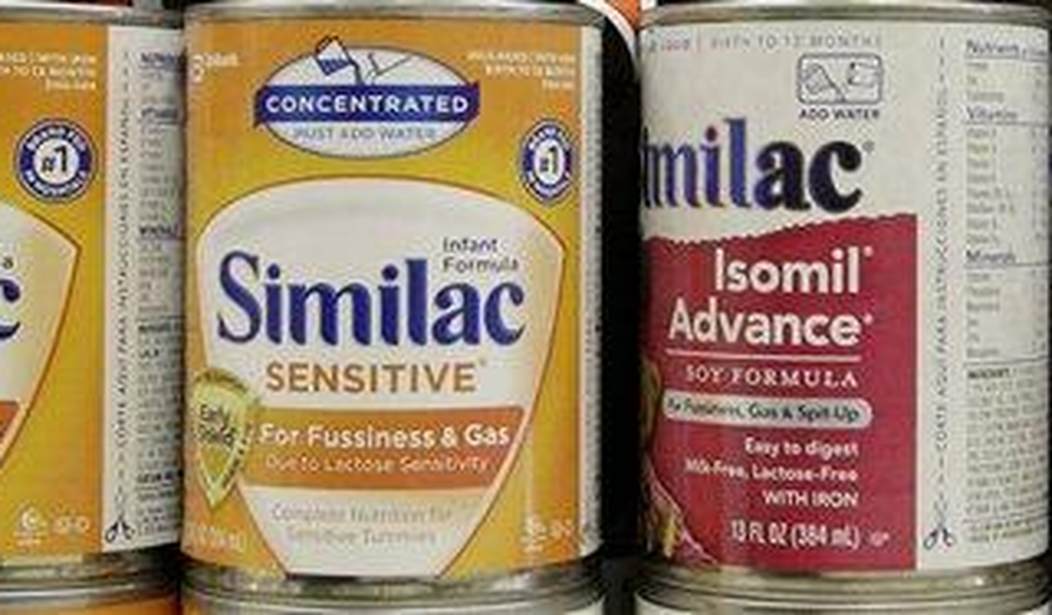The supply crisis in baby formula has resulted in empty shelves at grocery stores and pharmacies. The Biden administration is pledging to do everything in its power to alleviate the crisis.
The reality is that the FDA is initiating a PR campaign to give desperate parents the impression that what the government is doing will significantly help fix the supply chain problems. In fact, this was a problem created by the pandemic and made worse by the government.
Related: The Biden Administration Ignores Trucking Industry Recommendations for a New Driver Training Program
The pandemic wreaked havoc on supply chains. There were disruptions in ingredients, labor, and transportation while shortages encouraged parents to stockpile formula.
But those shortages were manageable. The killer was the FDA’s decision to shut down an Abbott lab in Sturgis, Mich. — its largest baby formula manufacturing plant in the world — last February due to a suspected outbreak of bacteria. Four infants were exposed to a rare strain of bacteria and two died.
Abbott denies their plant is the source of the bacteria. But the FDA shut it down when it found “lax safety protocols and traces of the bacteria on several surfaces,” according to the Associated Press. Significantly, the bacteria found in the plant did not match the strain of bacteria that infected the infants.
The FDA has yet to determine if any formula sitting in the plant right now has been contaminated.
Chicago-based Abbott said it is increasing production at its other facilities to fill the gap, including air-shipping formula from a plant in Ireland.
The shortages are especially dangerous for infants who require specialty formulas due to food allergies, digestive problems and other conditions.
“Unfortunately, many of those very specialized formulas are only made in the United States at the factory that had the recall, and that’s caused a huge problem for a relatively small number of infants,” Abrams said.
After hearing concerns from parents, the FDA said last month that Abbott could begin releasing some specialty formulas not affected by the recalls “on a case-by-case basis.” The company is providing them free of charge, in coordination with physicians and hospitals.
This isn’t a shortage of toilet paper or hand sanitizer. This is a baby food shortage. What’s worse, the shortage is most acute with specialty formulas — prescription formulas — for which there are no substitutes.
Parents are in panic mode, traveling long distances looking for their baby’s formula or connecting online with other parents who might have extra formula to sell or donate.
But the FDA can only assure desperate parents that the futile measures it’s taking to address the crisis will actually make a difference.
The agency said it is meeting regularly with formula manufacturers about ways to increase the production of various types of infant formulas and medical foods, provide foreign formula importers a streamlined entry review process for certain products, and track trends for in-stock trends across the U.S. in order to better determine what parts of the country is in most dire need. The FDA is also expediting the review process for companies making manufacturing changes that are meant to speed up production.
“We recognize that many consumers have been unable to access infant formula and critical medical foods they are accustomed to using and are frustrated by their inability to do so,” FDA Commissioner Robert Califf said. “We are doing everything in our power to ensure there is adequate product available where and when they need it.”
Managing the shortage is not addressing the problem. It’s a supply crisis, and the White House and FDA are treating it as a PR problem.
It’s a sad and tragic reminder of the incompetence of the man in the White House.










Join the conversation as a VIP Member